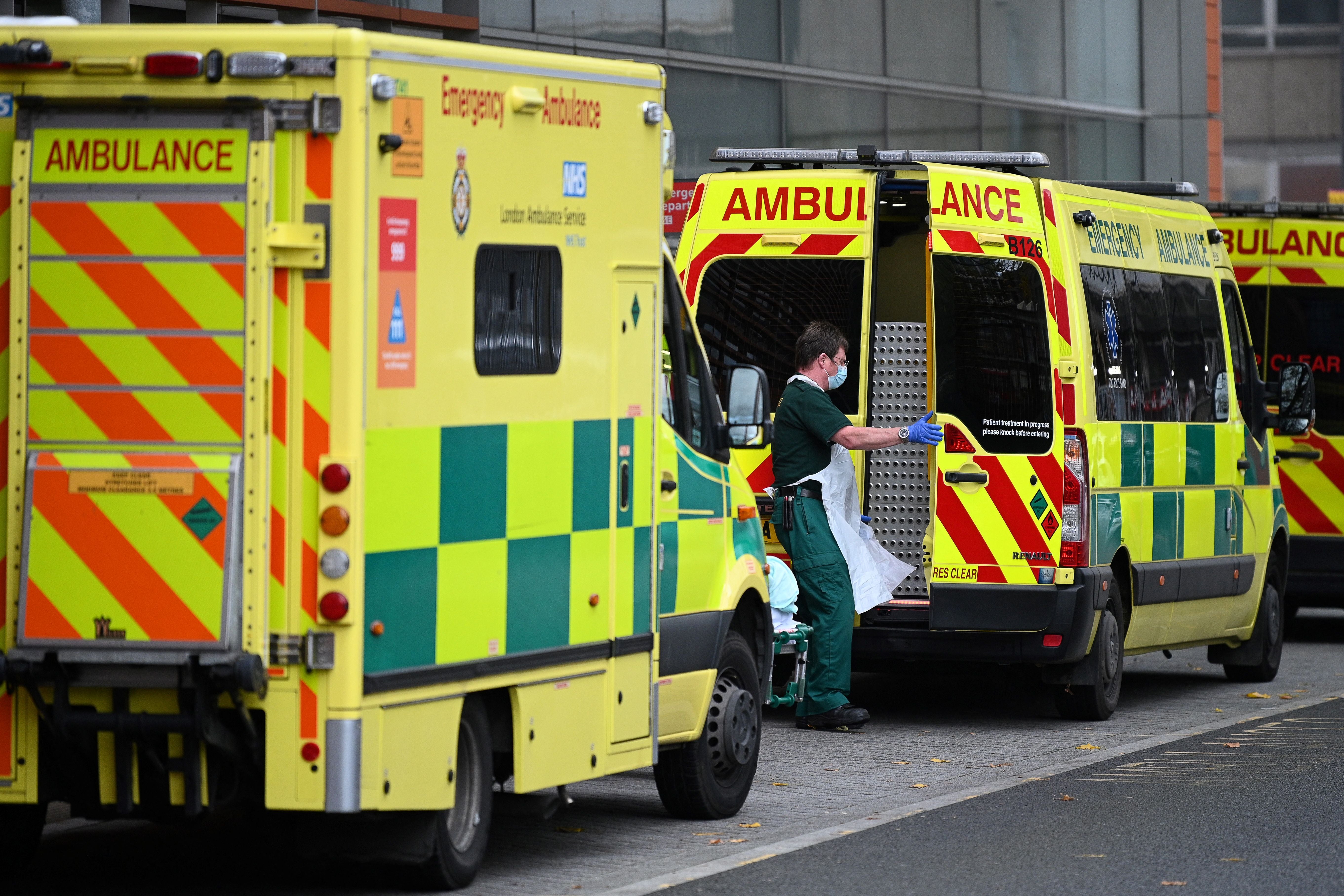NHS: Expert panel to discuss the true scale of the crisis
Get your free ticket to our virtual event - Breaking point: Exposing the true scale of the NHS crisis


Your support helps us to tell the story
From reproductive rights to climate change to Big Tech, The Independent is on the ground when the story is developing. Whether it's investigating the financials of Elon Musk's pro-Trump PAC or producing our latest documentary, 'The A Word', which shines a light on the American women fighting for reproductive rights, we know how important it is to parse out the facts from the messaging.
At such a critical moment in US history, we need reporters on the ground. Your donation allows us to keep sending journalists to speak to both sides of the story.
The Independent is trusted by Americans across the entire political spectrum. And unlike many other quality news outlets, we choose not to lock Americans out of our reporting and analysis with paywalls. We believe quality journalism should be available to everyone, paid for by those who can afford it.
Your support makes all the difference.The NHS is in crisis. Thousands of patients are being forced to wait more than 12 hours in A&E each week. More than two million people have now gone 18 weeks without treatment. Many hospitals are dilapidated and rundown. Ambulances are taking hours to reach emergency calls. And social care remains crippled by paralysis, unable to properly accommodate those returning to the community after treatment and surgery.
Many of these problems predate the pandemic but have been amplified by Covid, which threw the NHS into an unprecedented state of crisis over the past two years. Nurses, doctors and hospital staff went above and beyond in their response, but have been pushed to the brink, with many driven out of the health service due to the sheer mental strain of saving lives and tackling the pandemic.
But the NHS does not exist and operate in isolation. The challenges it faces are both interconnected with one another and also shaped by wider societal pressures that are being felt by many other sectors beyond the healthcare industry. Times are difficult. The purse strings are being tightened.
Looking forward, the future of one of the UK’s most prized assets is uncertain. What comes next?
How will the NHS bring down A&E waiting times and reduce the size of its patient backlog? How can it maximise the money that is being pumped throughout the health system? Is enough even being invested? How can the service regain the trust of patients, who are growing ever dissatisfied with the services they receive? There is much to consider and overcome.
Join your host The Independent’s health correspondent Rebecca Thomas, plus a panel including senior news correspondent Samuel Lovett, Sarah Tilsed, Head of Patient Partnership at the Patients Association, Dr Adrian Boyle, Emergency Consultant and the next President of the Royal College of Emergency Medicine and Dr Layla McCay, Director of Policy at NHS Confederation to discuss all of these themes and dive into the heart of tackling the crisis facing the national health service on Wednesday 13 July. The event starts at 6.30pm and will last one hour.
For more information and to get your free ticket, visit our Eventbrite page.
Join our commenting forum
Join thought-provoking conversations, follow other Independent readers and see their replies
Comments